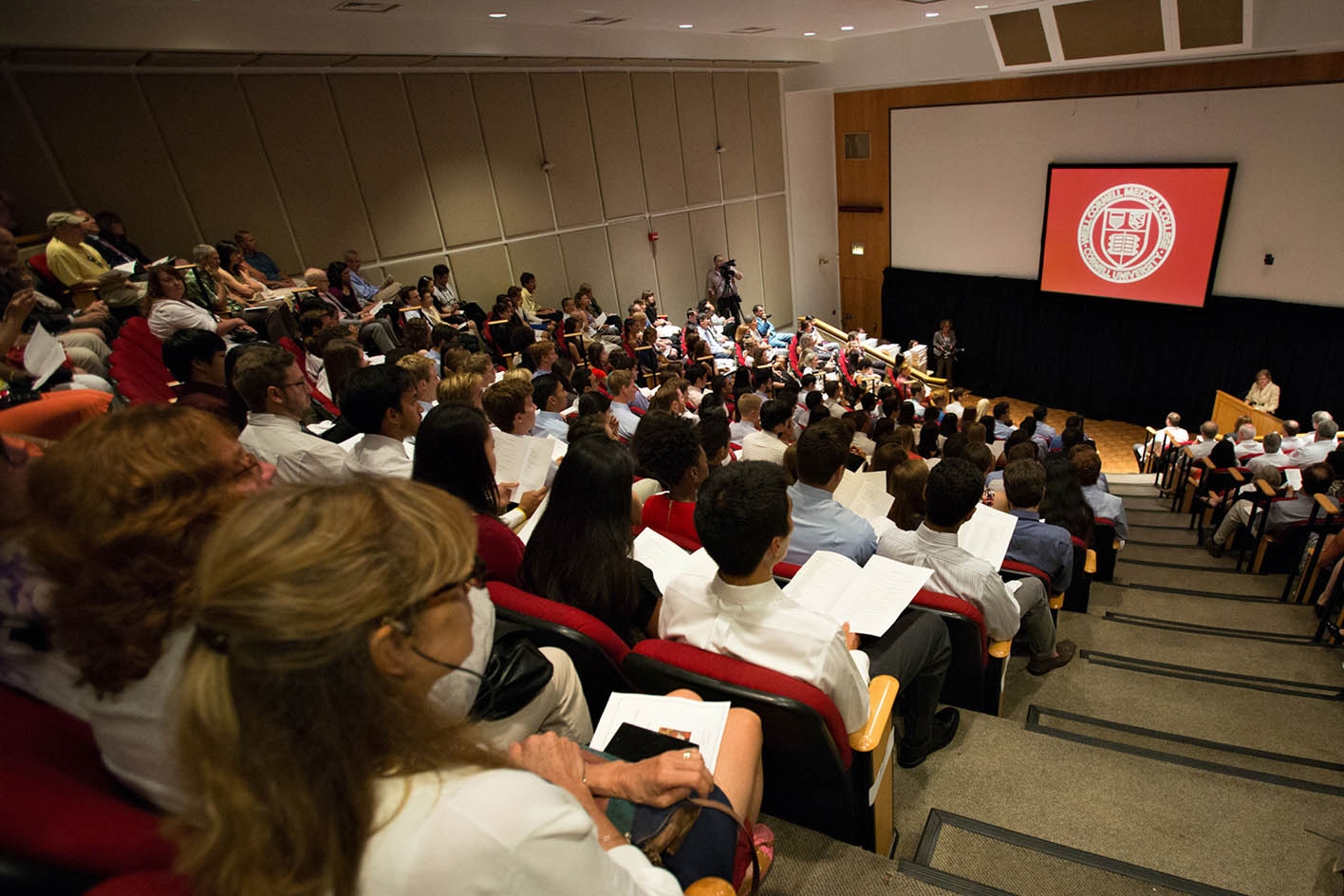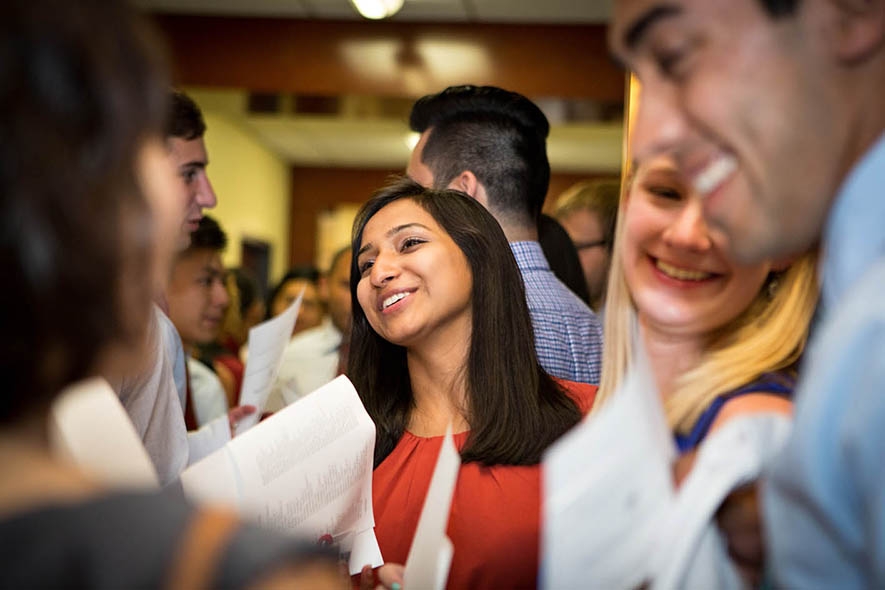
First-year students attend Weill Cornell's White Coat Ceremony.
For Lorien Menhennett, putting on her short white coat marked the end of an unconventional lead-up to her medical education. Prior to applying to medical school, Menhennett majored in journalism and worked as a reporter and textbook editor before realizing that her work did not fulfill her.
"At some point I came to the conclusion that what I wanted was not to be an observer but a participant in people's lives," said Menhennet, 33, of Chicago.
Along with her fellow classmates in the Class of 2019, Menhennett is one step closer to her dream profession after taking part in Weill Cornell Medical College's annual White Coat Ceremony on Aug. 18.
In the intimate setting of Uris Auditorium, the students filed on stage four at a time to be "coated" by Weill Cornell faculty members, officially launching the start of their medical education. Weill Cornell received more than 6,100 applications, with 106 students enrolling. The class hails from 23 states, Canada, China, Iran and Italy. Collectively, students speak 27 different languages and play at least 11 instruments.
"This ceremony is a rite of passage for me, and it's something I've wanted for a long time and now I have it," Menhennet said.
As it already has for Menhennet, the meaning of the white coat will evolve for students as they move through their education and careers, said keynote speaker Dr. B. Robert Meyer, a professor of clinical medicine.
\"I suspect that for many of you here today, this will be a costume rather more than a uniform. You will feel yourself an actor playing a role, but not yet really identified with that role," Dr. Meyer said. "As you spend more time in medical school, residency training and in the practice of medicine, the coat will become not a costume but a uniform.

First-year student Shokhi Goel gathers with fellow students before Weill Cornell's 2019 White Coat Ceremony.
"It comes to be a part of you. It will no longer be a costume that you put on for a role you are playing, nor a symbol of an academic degree that you have achieved. It is very much who you are," he said.
Ilana Scandariato, 21, of Stonybrook, N.Y., described the white coat as "the start of something brand new. It's almost like a blank slate." She had always wanted to be a doctor, but when she was 13 years old, she lost her mother to cancer, and that was the moment her goal was reaffirmed.
"Even before she passed away, I talked with her about how being a doctor was my goal. It's nice how she factored into my decision in a lot of ways," Scandariato said.
The centrality of patients to the profession of medicine was highlighted by Dr. Laurie H. Glimcher, the Stephen and Suzanne Weiss Dean of Weill Cornell, who read the Hippocratic Oath – a vow of physicians' responsibilities that the students will recite when they graduate.
"No matter what you end up spending your professional career doing, what is most important is to always keep the patient at the center of everything you do," Dr. Glimcher said during her speech welcoming the students and their families. "If you use that as your beacon, you will have a very fulfilling and productive career in the service of others."

